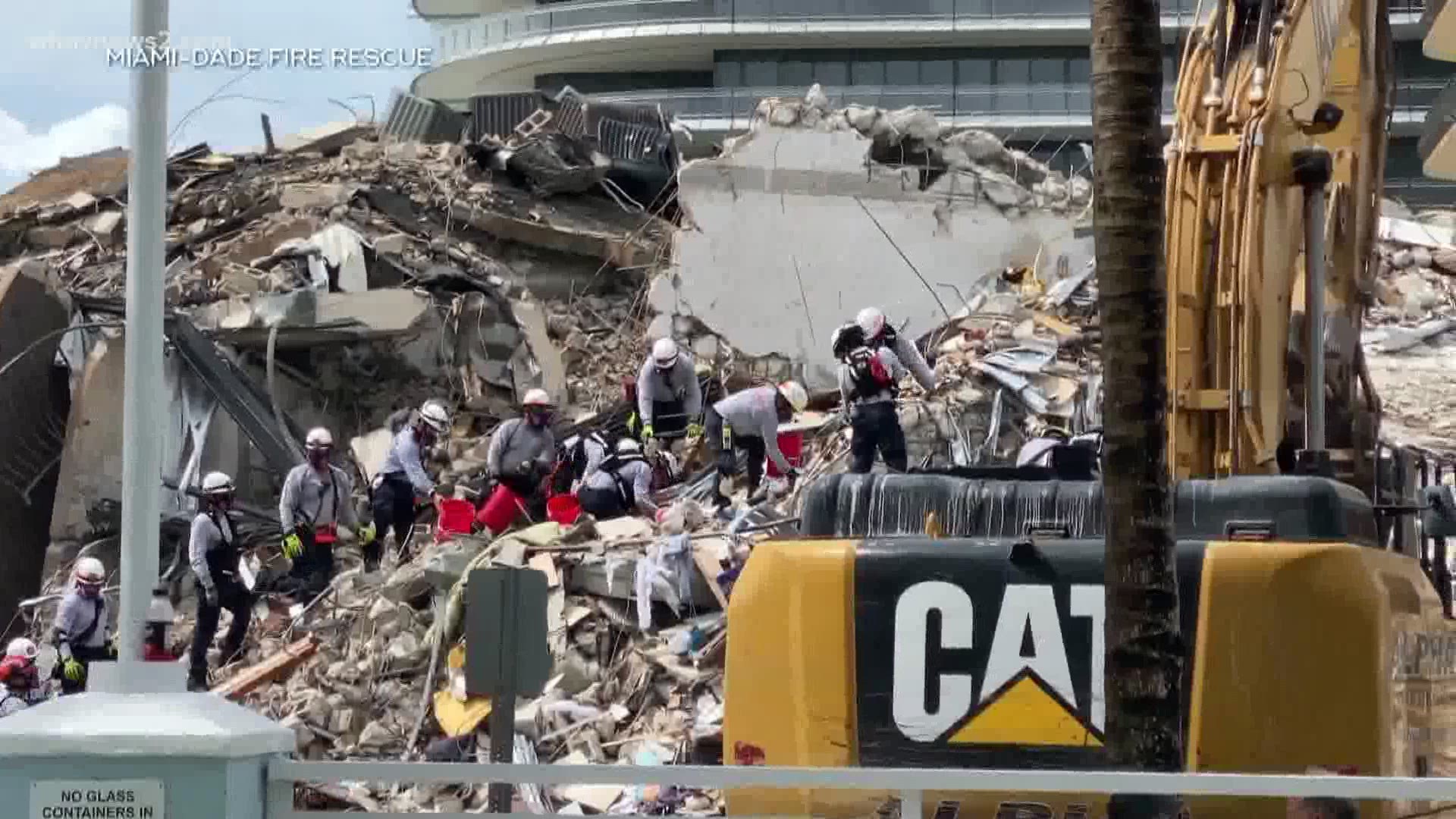Six days after a condo building collapsed in south Florida, search teams continue to look carefully through rubble and debris, but have yet to find 149 people.
Rescue teams in the Triad and in our state have not been called in to assist, but they're on standby - prepared to respond if needed.
While they wait, WFMY News 2 checked in with an expert on these type of searches, to get a sense of how the rescue missions work.
Bob Duemmel is a retired firefighter from Rochester, New York, and the 1st vice president of the State Urban Search and Rescue Alliance, a national non-profit organization that works as an advocacy group and a promoter of training and development for these kinds of search teams.
"The ones we see the most on TV working the pile - these are the various structure specialists, search team specialists, and rescue squad members that are basically boots on the ground doing the heavy lifting," he said.
He is not a part of the current efforts, but has decades of expertise on this type of work, and explained what might not be obvious to the everyday observer.
"A lot of people who watch the news feeds ask - why didn't you put more people out there? You don't look like you're doing anything?" he said, "They could be heavily engaged with something very specific but for someone looking from the outside - it’s difficult to understand just how busy and how much work they’re actually doing at that given moment."
He says, what might seem like a slow process, is anything but, with the search teams working at a fevered pace.
"It's very choreographed activity actually. Areas are picked to be searched, recon teams will go in initially with dogs, search cameras, and rescue specialists try to pinpoint locations, so that when the following squads come in they are hoping to target areas that are going to be the highest probability of success," he said, "You don't want to put too many people in there at once just because you don't want to overburden the weight factor. You're adding to an already unstable environment."
Duemmel calls the work time consuming, dangerous, and most of all - important.
"The work they’re doing - they’re doing things with a purpose," he said, "Also because of something of this nature, it’s basically a forensic activity too, so it’s not as simple as picking up a piece of debris and throwing it over your shoulder. They’re being moved with purpose, potentially taken to a specific holding area to hand it off to another agency for their aspect of follow up investigation, so it's a definite unified command of many different entities working together."


